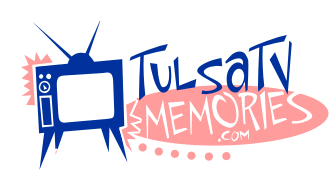
"Shattered Glass"
A Review by Gary Chew
|
Other than the presence of oxygen, water and food, the right to freedom of expression is what we need most. From it flows our ability to make informed decisions. (I hear that Thomas Jefferson thought there could be no government without newspapers. We might add magazines to that...and, well, we're still working on telecommunications.) So, I've been left scratching my head, wondering if Stephen Glass, Jayson Blair (former New York Times reporter) and other ersatz journalists who've flaunted their lack of respect for responsibility to sustain the right to free expression could tell us, honestly, how slippery the slope was when they were on their way down.
"Shattered Glass," is a new fact-based film about the 1998 appearance of fiction that spread through the pages of The New Republic in more than two dozen plagiarized or fabricated articles by one of the opinion magazine's bright, young writer/editors: Stephen Glass. Billy Ray, who wrote and directed "Shattered Glass," doesn't believe the viscosity of the incline that Stephen Glass traversed is what's important to his important film; it's more about the importance of honesty to one's profession (whatever it might be) while being caught up in the swoosh of ambition. Hayden Christensen, previously a "Star Wars" Skywalker, comes to us at first in the film as the smart, charming, best-on-staff of the youthful The New Republic team. Christensen's Glass character is so good relating his articles-in-progress at editorial meetings, one might guess he'd be better suited as a radio talk show host. He's every staff member's favorite, and ours as well.
Peter Sarsgaard, whom I remember best from "The Center of the World" with Molly Parker (I can't imagine why), plays Charles Lane, the man promoted to the position of Editor at The New Republic following the dismissal of Michael Kelly. "The Simpsons" voice-man, Hank Azaria, who takes the role of Kelly, is so believable it hurts to watch him. Kelly is the paragon of honesty in journalism and a real mentor to a staff that really respects and cares for him. Lane's character is less well-received early in the film. On becoming Editor, he has to be the "bad guy," grilling Glass, over and over, about inventing facts for his articles, after an on-line magazine spots the fabrications. The staff feels Lane's assault on Glass is just office politics. His job becomes increasingly difficult, but in time, the film actually becomes Lane's as the flaws in Glass's character are revealed, layer by disgusting layer. Christensen and Sarsgaard do their jobs well.
One slight problem for me with "Shattered Glass," however, is that it seems a bit sophomoric or maybe adolescent in tone. But in the long term, that may bode well for the film and the people who see it. For, to my mind, this motion picture should be required viewing for anyone even remotely contemplating a career in professional journalism. All J-schools should put into their budget request the purchase for several copies of "Shattered Glass" for continued classroom use, semester after semester. We have many more opportunistic media people than just Stephen Glass and Jayson Blair. The list seems to get longer each day. But then, we have others in the media who are journalists. Charles Lane now works for The Washington Post and Michael Kelly went on to The Atlantic Monthly. He was killed on assignment for that magazine last April in Iraq.
Gary Chew can be reached via email at garychew@comcast.net.
|